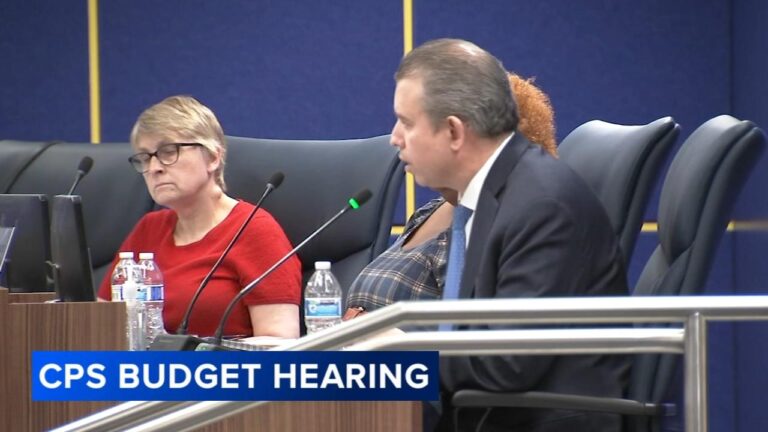Chicago School Board Encouraged to Refinance Debt to Manage Pension and Labor Expense Challenges
Facing escalating pension commitments and rising labor expenses, Chicago’s municipal leadership is advocating for the Chicago Board of Education to consider refinancing its current debt obligations.This financial restructuring is viewed as a strategic move to unlock critical budgetary adaptability, enabling the district to better manage its long-term liabilities while safeguarding essential educational services. City officials emphasize a cooperative approach between municipal and school authorities to ease fiscal pressures without resorting to immediate tax increases or program reductions.
The refinancing proposal centers on several pivotal elements designed to enhance fiscal stability:
- Reduced interest rates: Capitalizing on favorable market trends to lower borrowing costs.
- Lengthened repayment schedules: Distributing debt payments over a longer horizon to reduce annual financial strain.
- Reallocation of savings: Directing funds saved from debt service toward pension obligations and labor contract commitments.
| Loan Duration | Existing Interest Rate | Suggested Interest Rate | Projected Yearly Savings |
|---|---|---|---|
| 10 Years | 4.5% | 3.1% | $16 Million |
| 15 Years | 5.0% | 3.7% | $23 Million |
Financial Strain from Increasing Labor Expenses in Chicago Schools
The Chicago Public Schools system is under important financial duress as labor-related costs continue to climb, exacerbating an already tight budget.The city’s call for debt refinancing aims to mitigate the immediate fiscal impact of ballooning pension payments, which now represent a substantial portion of the district’s expenditures. This approach is intended to provide the district with the necessary fiscal breathing room to honor labor contracts while maintaining vital educational programs and infrastructure investments. Nevertheless, this strategy has sparked debate among community members and financial experts regarding its long-term viability and the risk of increasing overall indebtedness.
Several critical factors contribute to the district’s budgetary challenges:
- Growing pension obligations: Increased contributions driven by demographic changes and underperforming investment returns.
- Recent labor agreements: Contracts that include wage hikes and enhanced benefits, intensifying budgetary pressures.
- Rising operational expenses: Costs related to healthcare and employee services have surged alongside salaries and pensions.
| Expense Category | 2019 Actual | 2024 Forecast |
|---|---|---|
| Pension Contributions | $460M | $730M |
| Labor Contract Costs | $1.25B | $1.65B |
| Healthcare Expenses | $310M | $430M |
As these financial realities intensify, restructuring the district‚Äôs debt emerges as a necessary, albeit complex, solution‚ÄĒone that requires balancing immediate relief with prudent long-term fiscal management.
Evaluating the Advantages and Drawbacks of Debt Refinancing in Public Education
Refinancing debt offers Chicago Public Schools a tactical prospect to ease short-term financial burdens, particularly those stemming from rising pension and labor costs. By renegotiating debt terms, the district could secure lower interest rates or extend repayment periods, thereby enhancing cash flow and budgetary flexibility. This financial adjustment could enable the reallocation of funds toward critical priorities such as classroom resources, teacher salaries, and student programs, providing a temporary buffer against escalating expenses without drastic service cuts.
Though,refinancing is accompanied by inherent risks. Prolonging debt maturities may increase the total interest paid over time, potentially straining future budgets. Additionally, refinancing decisions can influence the district’s credit rating, affecting its ability to borrow under favorable terms in the future. Key considerations for stakeholders include:
- Cost savings potential: Lower annual debt payments freeing up budget resources.
- Long-term fiscal impact: Effects on future budget flexibility and total debt costs.
- Market dynamics: Fluctuations in interest rates and investor demand shaping refinancing conditions.
- Transparency and trust: Maintaining public confidence through clear communication and accountability.
| Factor | Potential Benefit | Possible Risk |
|---|---|---|
| Interest Rate | Reduced payments due to lower rates | Risk of future rate increases impacting refinancing options |
| Repayment Term | Lower immediate budget pressure through extended terms | Higher cumulative interest costs over the life of the debt |
| Credit Rating | Improved ratings from better cash flow management | Potential downgrade if debt levels become unsustainable |
Strategies for Long-Term Pension Funding and Budgetary Resilience
To effectively manage the growing pension liabilities, the Chicago school board should adopt a comprehensive refinancing plan that balances immediate budget relief with sustainable fiscal health. This may include negotiating lower interest rates through bond restructuring or utilizing state-supported financing programs tailored for educational entities. Moreover, implementing a flexible funding framework that adjusts pension contributions based on actuarial assessments can help cushion the district against unexpected financial shocks. Collaboration among financial advisors, labor unions, and city officials is crucial to develop equitable solutions that address both current and future obligations.
A sound budget management approach should incorporate:
- Frequent actuarial evaluations: Regularly monitoring pension fund status to proactively identify funding shortfalls.
- Diversified revenue sources: Considering dedicated taxes or partnerships with private entities to bolster pension funding.
- Expense optimization: Streamlining administrative costs while preserving quality education and employee support.
- Inclusive stakeholder communication: Maintaining ongoing dialog among city officials, school board members, unions, and taxpayers to build consensus and trust.
| Approach | Advantage | Risk Management |
|---|---|---|
| Debt Refinancing | Decreased interest expenses | Securing fixed rates to mitigate market volatility |
| Adaptive Contribution Model | Responsive to pension fund performance | Regular actuarial updates to guide adjustments |
| Revenue Expansion | Consistent pension funding streams | Transparent financial reporting |
| Stakeholder Collaboration | Enhanced consensus and shared obligation | Scheduled public engagement forums |
Final Thoughts on Chicago Schools’ Financial Path Forward
As Chicago’s City Hall presses the school board to refinance its debt to confront rising pension and labor costs, the district faces a pivotal moment in its financial stewardship. The choices made in restructuring debt and managing long-term obligations will profoundly influence the future of Chicago’s public education system, affecting students, educators, and the broader community. Vigilant oversight and collaborative problem-solving will be essential as stakeholders navigate this complex fiscal terrain to secure a stable and thriving educational surroundings.





